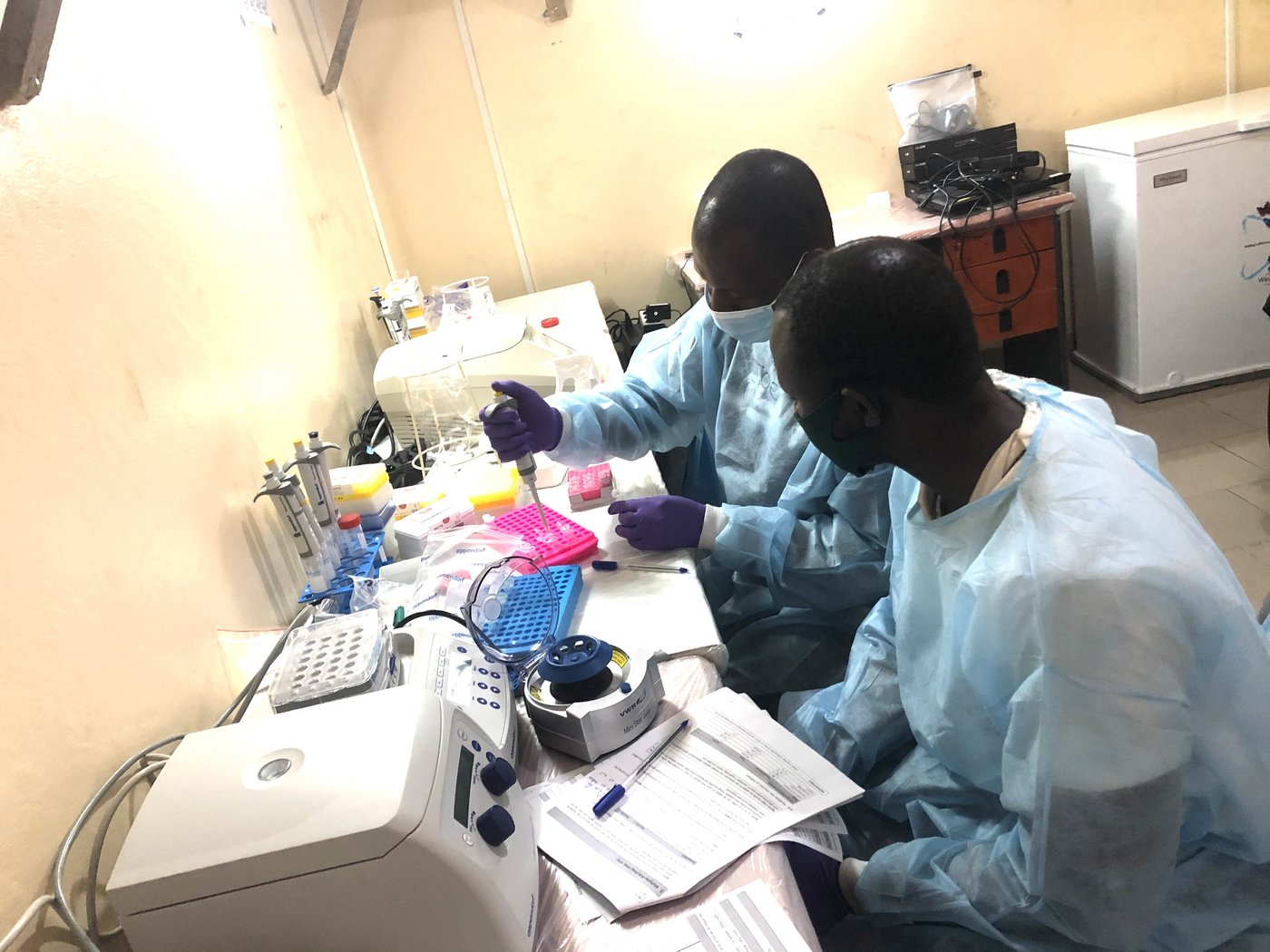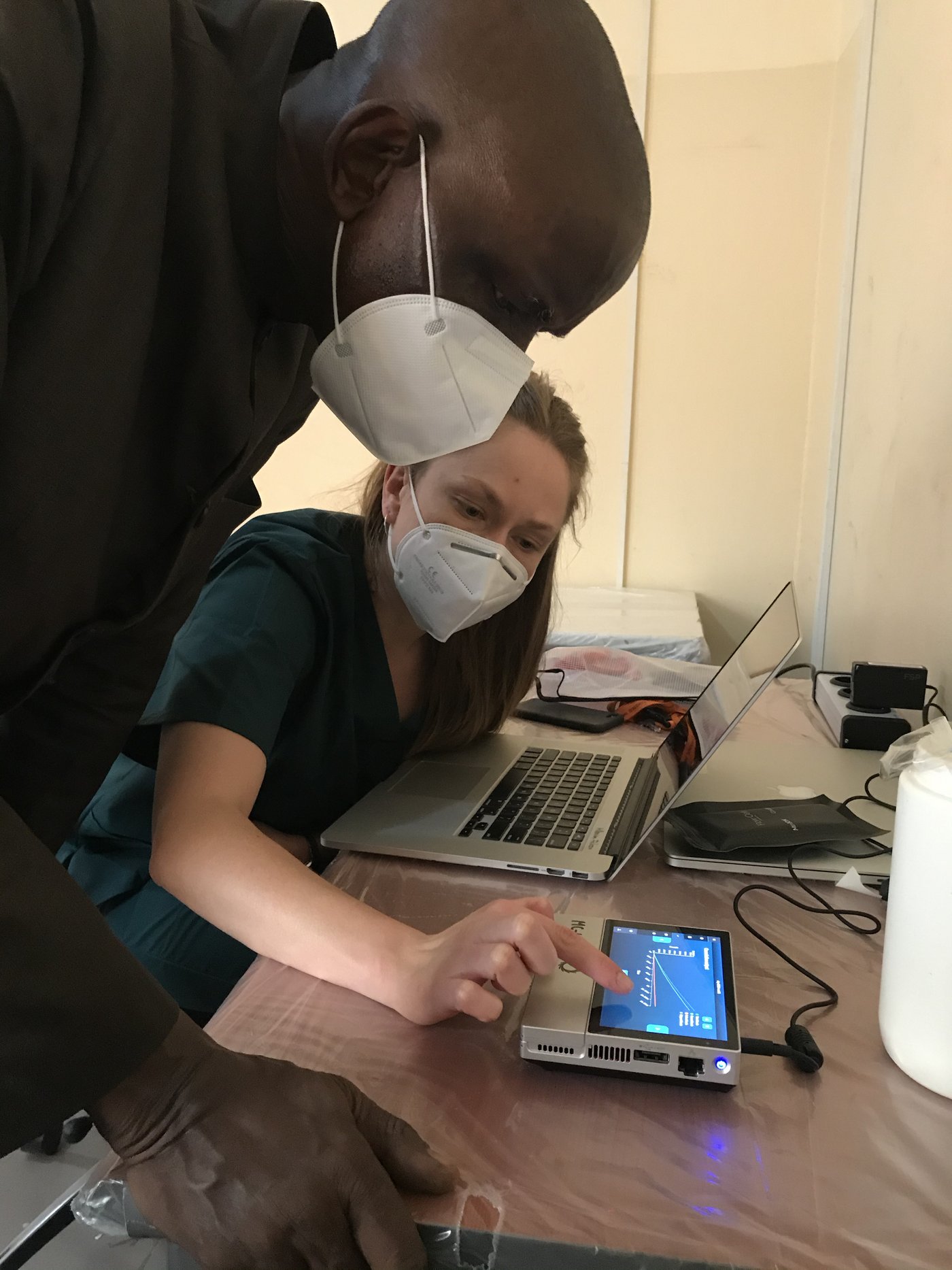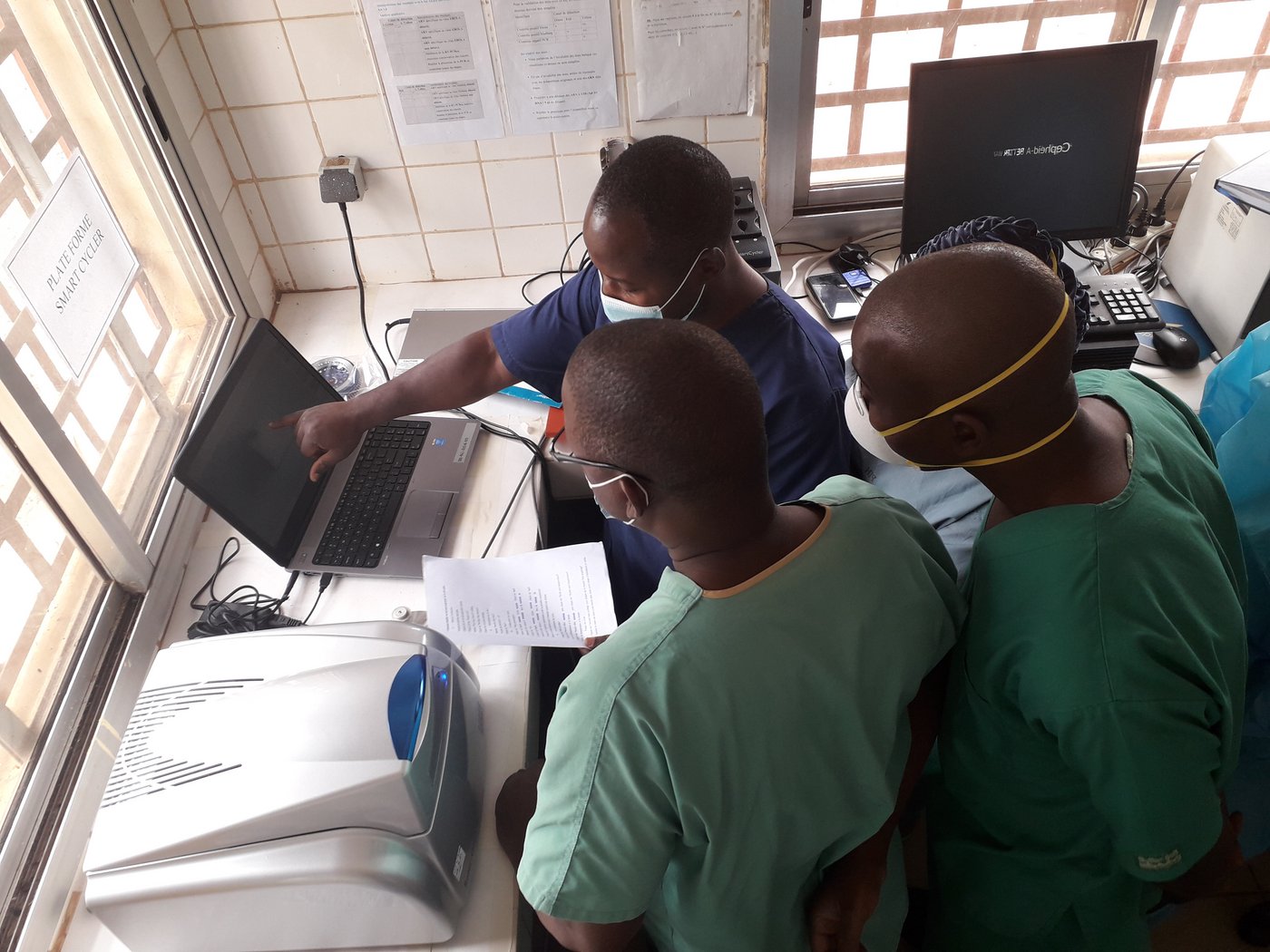Mission made possible despite of COVID19: BNITM helps contain Ebola outbreak in Guinea
BNITM-teams assisted in testing and sequencing patient samples
Following the request for assistance from the Ministry of Health of Guinea, the Bernhard Nocht Institute for Tropical Medicine (BNITM) sent teams to support Guinea in setting up in-country sequencing with the Oxford Nanopore MinION and to strengthen diagnostic capacity needs. The mission took place within the framework of the WHO Global outbreak alert and response network (GOARN) and the Global Health Protection Programme (GHPP) of the Federal Ministry of Health.
These activities have been instrumental in finding that the Ebola virus at the origin of the current outbreak is related to the Ebola virus strain Makona that was circulating in 2014-2016 epidemic. These results were shared in a joint post on virological.org with two other sequencing laboratories.
A multisite and long-term capacity building training program has also been launched in the laboratories based in Conakry, NZérékoré and Gueckédou that are involved in Ebola virus and SARS-CoV-2 diagnostics.
Teams of the BNITM have been deployed under WHO/GOARN to Guinea early March to support the laboratory response with the EVD outbreak and particularly the laboratories of the Reginal Hospital of NZérékoré, at the epicenter of the outbreak, Viral Hemorrhagic Fevers of Gueckédou and Viral Hemorrhagic Fevers of Guinea (LFHG) in Conakry; the latter as laboratory to establish the sequencing capacity.

Additional teams of experts are expected to pursue this mission in the coming months to favor sustained impact and benefit for the laboratories. In addition to deploying experts, the BNITM has also supported the three partner laboratories with reagents and equipment.

©BNITM
The implementation of in-country sequencing was also possible thanks to the GHPP-funded program "Lassa Nigeria - developing sequencing capacities" which aims at enabling sequencing capacities in resource limited settings. Experts and capacities were readily available to answer to the needs of Guinea and a long-term training program is ongoing. These works have been key in advising Guinea about the origin of the EVD outbreak. Indeed, the current Ebola virus does not come from a new transmission from animals to humans, but from a person who was previously infected with a virus that was circulating in 2014-2016. The Guinean Ministry of Health through the “Agence Nationale de Sécurité Sanitaire” (ANSS), the WHO and other partners have launched appropriate communication tools to share these findings and prevent the stigmatization of individuals who recovered from EVD.
The BNITM continues to work closely with MoH Guinea through ANSS, the World Health Organization (WHO), the Global Outbreak Alert Response Network (GOARN) and the laboratories in Conakry, NZérékoré and Gueckédou to ensure the best support possible in this period of emergency concomitant to the Covid pandemic.
Background: The BNITM is partner since decades with the laboratory “des fièvres hémorragiques virales en Guinée” of Prof. Magassouba N’Faly in Conakry. Also, as a legacy to the 2014-2016 EVD outbreak, the BNITM through GHPP has renovated and fully supports the sub-branch of Prof. Magassouba’s laboratory in Gueckédou. The “Laboratoire des Fièvres Hémorragiques Virales de Gueckédou” is independently managed by five dedicated biologists of whom 3 were intensively trained in the European Mobile Laboratory during 2014-2016 EVD outbreak. They offer diagnostics service of a broad range of viral hemorrhagic fevers (including EVD), as well as tuberculosis and HIV, in Forest Guinea since 2016. Currently, BNITM support is being extended to the partner laboratory in NZérékoré.

Contact person
Prof. Dr Stephan Günther
Head of Department of Virology
Phone : +49 40 285380-547
Fax : +49 40 285380-459
Email : guenther@bnitm.de
Dr Eleonora Schoenherr
Public Relations
Phone : +49 40 285380-269
Email : presse@bnitm.de
Julia Rauner
Public Relations
Phone : +49 40 285380-264
Email : presse@bnitm.de







